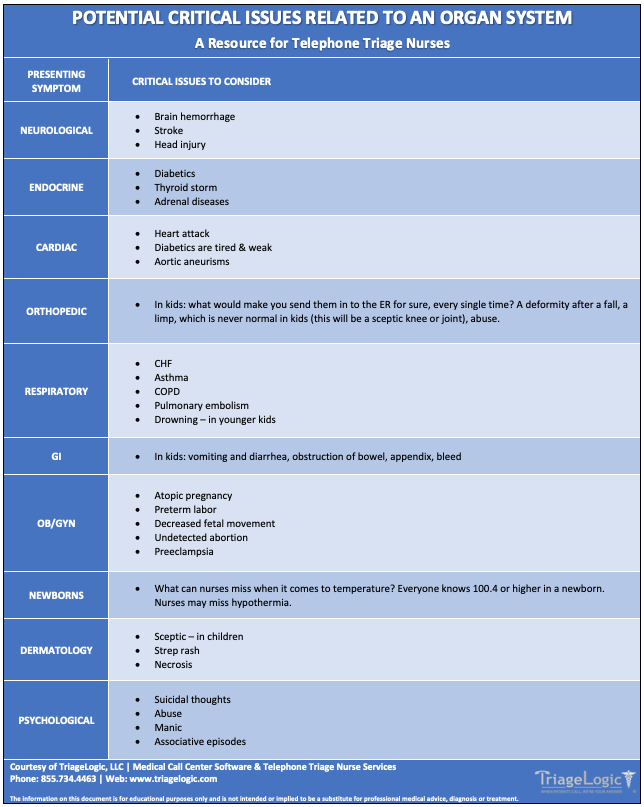One important reminder for telephone triage nurses is that when triaging a caller, they should view the call as an emergency until proven otherwise. If nurses handle the call in this manner, this will ensure that they won’t miss anything important and triage to the wrong disposition. As they’re listening to the caller, nurses should consider two things: for every symptom, what is the most life-threatening possible illness and what is the most common illness? Also watch our Medical Director’s video in our Learning Center discussing 911 calls.
Triage Nurses Must Be Objective & Create A Positive Experience
It’s important that the telephone triage nurse be objective towards the caller. As trained medical professionals, triage nurses need to put aside their views on gender orientation, religion, race, and politics for example, and remember that they’re treating a human patient who needs help now. To communicate effectively, it is also important for nurses to create a positive patient experience. One great way to achieve this is to always smile when speaking with the caller. Studies have shown that a smile is something you can hear and that people can detect different kinds of smiles even over the phone.
Never Diagnose
Triaging is ruling out – nurses should never diagnose over the phone. They should never tell the patient what they think they have; rather, they narrow down the search for the proper protocol based on the patient’s symptoms. To do this properly the nurse must listen to the caller’s entire history before triaging, thus ruling out the most emergent symptoms first. It’s not wise to just jump into triaging the moment they hear the first symptom. Using triage protocols is vital in order to rule out all possibilities so that the caller isn’t triaged to the wrong disposition.
CASE STUDY: TRUE STORY OF AN ENDOCRINE SYMPTOM
A mother brings her child into the doctor’s waiting room, ten minutes before lunch.
Mother: “My son’s been vomiting, has a fever and diarrhea.”
Nurse: “Has he been peeing enough, wetting his diapers?”
Mother: “Yes.”
Nurse: “Ok, wait until after lunch, then come back in.”
An hour later, mother and son return. There’s a different nurse on duty.
Nurse 2: “Is your son having wet diapers?”
Mother: “Yes.”
Doctor comes in the room and examines the child, discovering something unusual. Can you guess what the doctor found out? The child had diabetes. Neither of the nurses asked whether the child had “more or less” wet diapers than normal.
During one of our Town Hall meetings, we asked our telephone triage nurses: “Give an example of something critical that might be happening when presented with a certain symptom type, such as neurological, endocrine, cardiac, etc.” See table below for presenting symptom versus potential critical issue.
Visit our Learning Center to discover more free educational materials for telephone nurses and medical professionals. Contact us today if you’d like to learn more about how our advanced clinical call center can help your practice or organization. Download a brochure which lists our popular nurse triage products and services.






